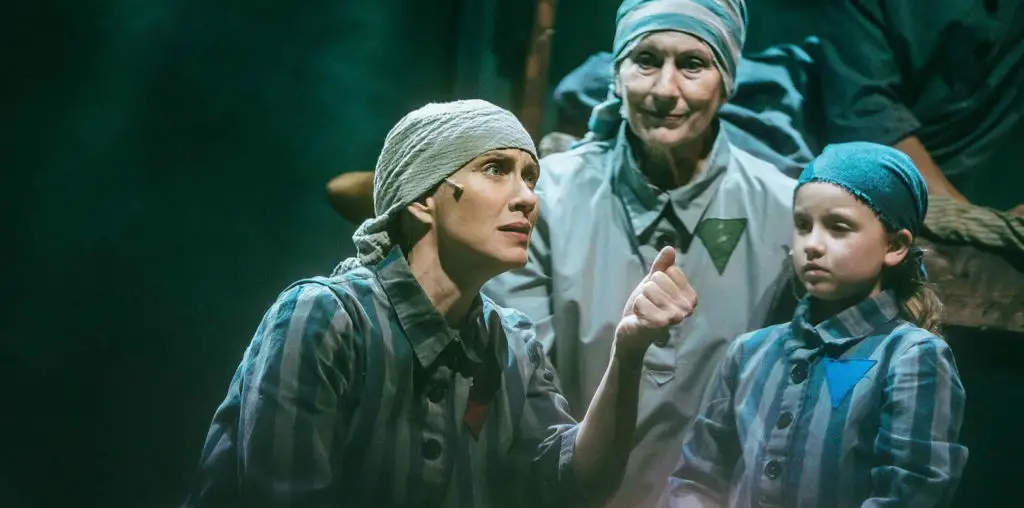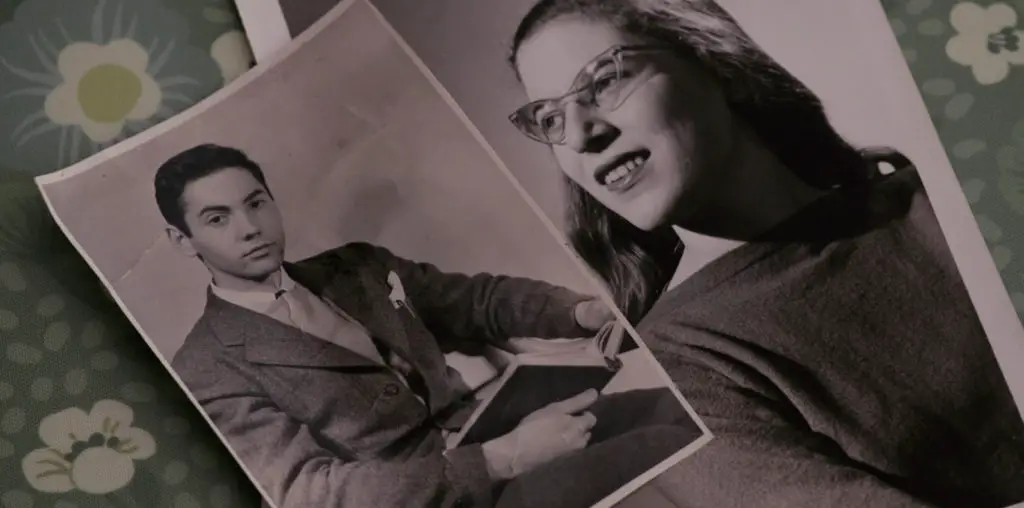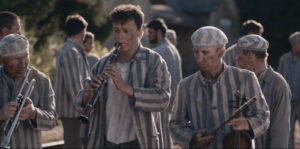
Terezin, directed by Gabriele Guidi, who co-wrote the movie with Enino Speranza and Alessandra Zannoni, is based on the true story of the infamous Theresienstadt Ghetto. While World War II is regular fodder for cinematic stories, the horrors reigned upon innocent men, women, and children should not be forgotten. Can the filmmakers make this something beyond the average Second Great War flick or not?
Antonio (Mauro Conte) and Martina (Dominika Moravkova) are musicians living in Prague when the Nazis invade. The loving husband and wife are soon pushed into Theresienstadt Ghetto with several other Jews. They are separated and put to hard labor to increase the size of the “city the Furher gave” to them. In a bid to prove to the world they aren’t that bad, the Nazis decide to allow a select few musicians to put on a concert. Those chosen are blessed with a reprieve from 3the hard labor to be able to give the best performance possible.
Of course, Antonio is chosen as the clarinetist. Nazi officers still harass and humiliate everyone unlucky enough to be there, regardless of the leeway shown for the concert. Throughout it all, Antonio is hoping to find out if Martina is still alive. She is in charge of the school children. Can they find each other again, or will this unbearable new life claim Antonio or Martina as victims, as it has with so many others?
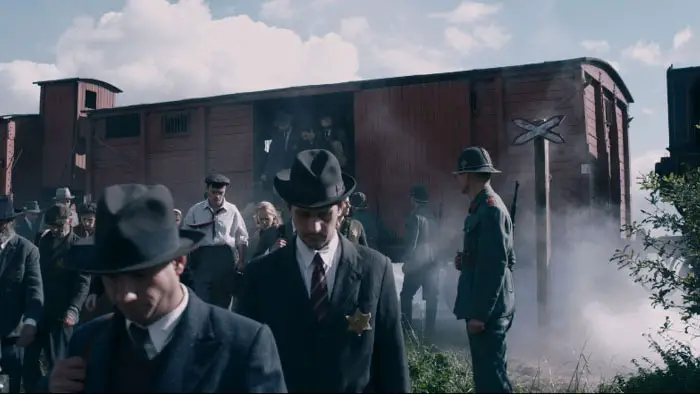
“In a bid to prove to the world they aren’t that bad, the Nazis decide to allow a select few musicians to put on a concert.”
When Terezin starts, it does feel like many other titles of this kind. But it soon finds new territory by focusing on the ghetto expansion efforts and the escape music offers the imprisoned Jewish community. While it hardly makes things better, how music keeps Antonio and others’ spirits high is the thematic heart. Music encompasses art, passion, culture, and raw emotions in ways other artistic endeavors cannot. Guidi knows this and uses music brilliantly throughout, making it as crucial to the motion picture as it was to the people living through a genocide.
Conte excels as the musician whose life is torn asunder by vile people with horrible ideas. He conveys sweet, determined, meek, and love believably. Morakova is also excellent. Her realization that not all those in a Nazi uniform want her dead is played subtly but with conviction. Her voiceover of a letter written to her husband is perfect.
Oddly, most characters in Terezin speak English to each other. The Nazis speak German, which works, but Prague’s primary language is Czech, and English is not very prominent there. Yes, Antonio is Italian, but he would have had to pick up the language during his time studying music there and living in Prague. The off-putting way the German sounds against the English dialogue is effective, but not enough not to question why nobody speaks Czech.
Terezin is a compelling WWII tale that finds a new way to approach the evils the Nazis perpetuated upon an undeserving people. The direction is splendid, and the cast is magnificent. While the English speaking is odd, it does not ruin or take away from the power of the story being told.
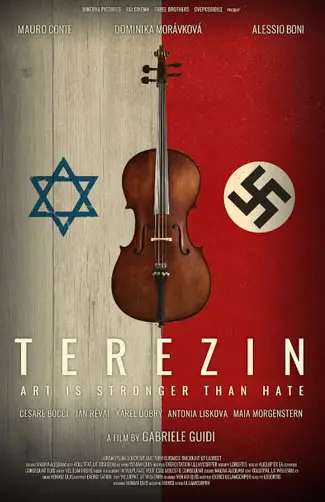
"…uses music brilliantly throughout..."

